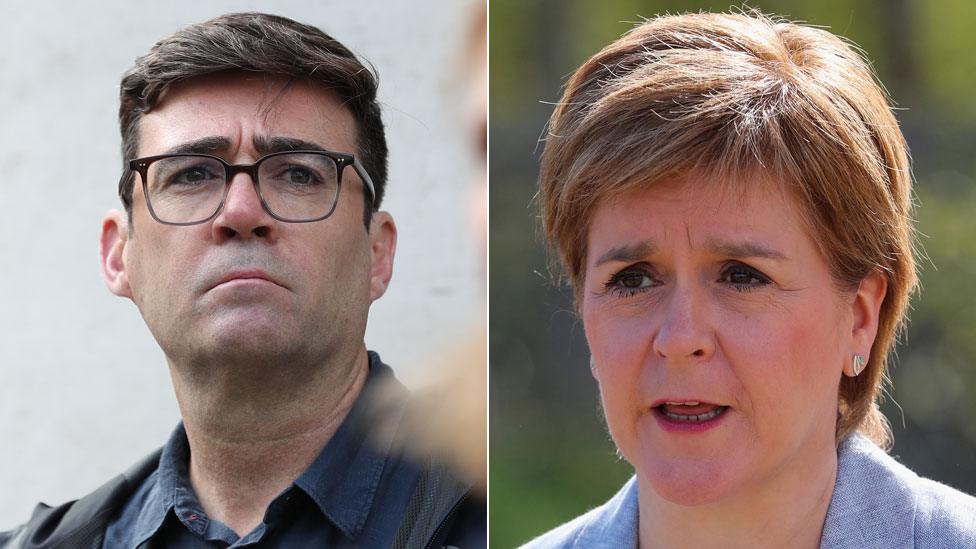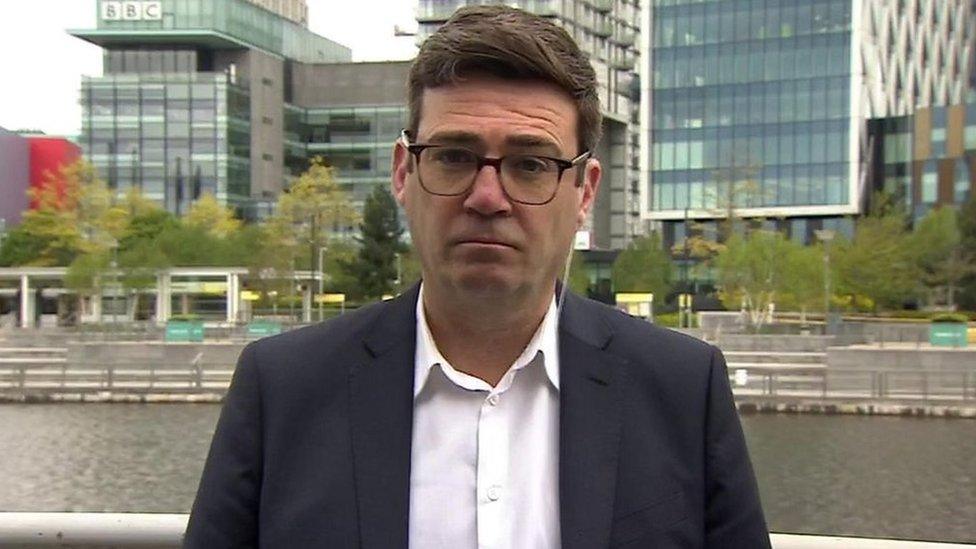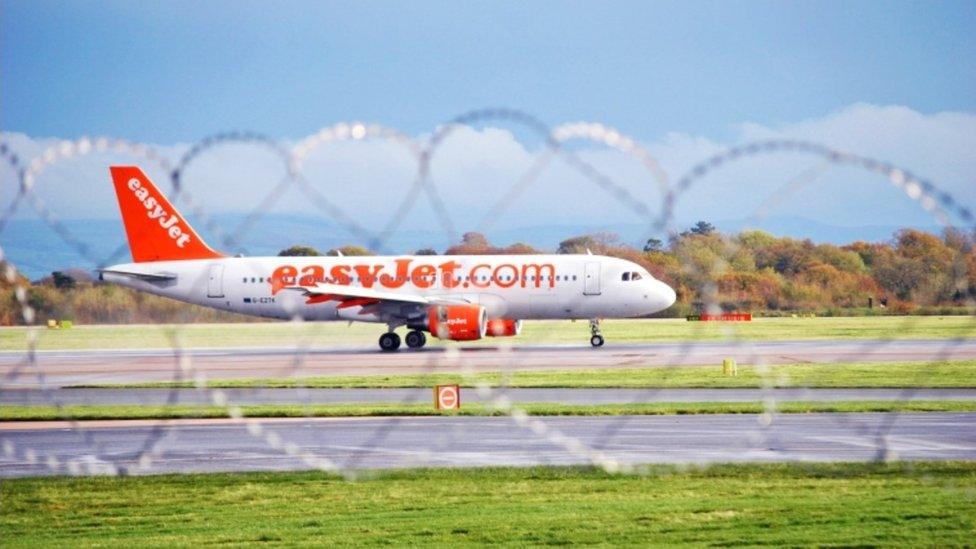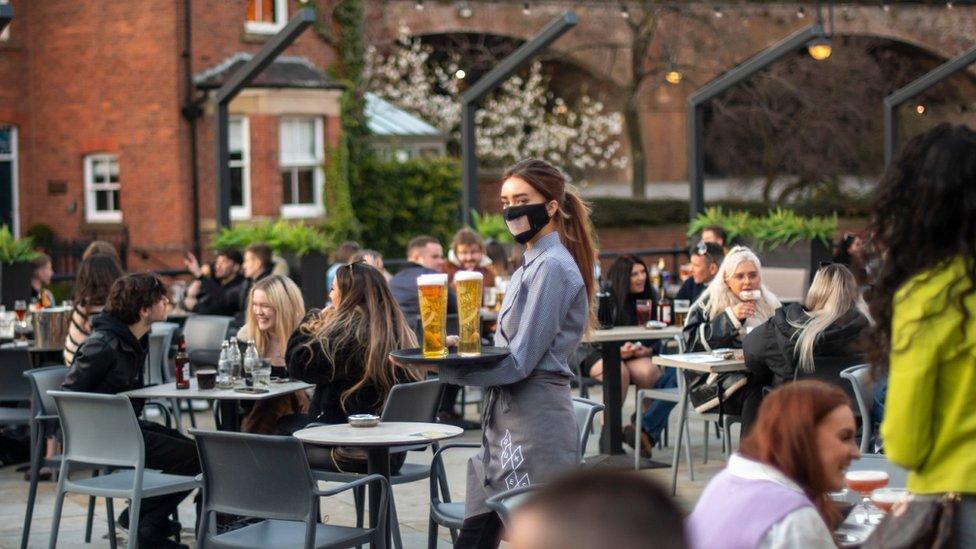Covid: Greater Manchester-Scotland travel ban row deepens
- Published

Andy Burnham and Nicola Sturgeon have clashed over the travel ban
A meeting between Greater Manchester's mayor and the Scottish first minister has deepened a row over a travel ban.
The ban on non-essential journeys between Scotland and Manchester and Salford came into force on Monday.
The Daily Telegraph reported that Andy Burnham was accused of being "incoherent and absurd", external during talks with Nicola Sturgeon on Wednesday.
Mr Burnham, who has expressed anger over the ban, told the BBC it had left people "out of pocket".
The mayor and the first minister spoke in a phone call in an attempt to resolve matters.
A spokesman for Mr Burnham said he was "surprised" details of the talks had been leaked, as it was understood to be a "confidential meeting".
He added that during the call, Ms Sturgeon had conceded she should have informed Mr Burnham before she announced the move, but the mayor had been "disappointed" that the first minister "completely dismissed the financial impact her decision has had... and the need for her government to consider providing compensation".

The mayor has accused the Scottish government of "hypocrisy" over the ban
Speaking to BBC Radio Manchester, Mr Burnham said his office "have still never been given the criteria on which this decision has been made".
"We have a situation... where Dundee has higher case rates than Bolton, but Bolton is under a travel ban [and] Dundee is not."
The latest figures showed the Dundee City area had an infection rate of 302 cases per 100,000 people in the week leading up to 20 June, while Bolton had a rate of 251 cases per 100,000 people in the week leading up to 19 June.
Mr Burnham said the issue was "about people who are out of pocket because holidays they had booked are cancelled through no fault of their own".
"We have got advice from the UK government and a ban from the Scottish government," he added.
"For the first minister to be blaming us, I don't quite understand, [as] we have been hit with a ban we knew nothing about."
The Scottish government has been approached for a comment.
'Significant' impact
After the decision was announced on Sunday, the mayor said it was "completely disproportionate" and accused the Scottish government of "hypocrisy".
The Scottish government said the decision was made after "careful consideration" while Ms Sturgeon has said she was "a bit confused" over the mayor's stance.
The first minister has said the ban was a public health measure, based on Covid levels in the area.
The latest figures showed that in the week leading up to 19 June, Manchester and Salford had the fifth and eighth highest Covid infection rates in England, with 377 and 333 cases per 100,000 people respectively.
On Tuesday, Mr Burnham said the ban was having a "significant" impact on people's lives, citing examples of a family who had to cancel a trip to Scotland to scatter the ashes of a loved one and a group of walkers, who had all had both vaccines, who were already in the country and "don't know what to do".
The Local Democracy Reporting Service said the mayor also told a press conference a hotel in Greater Manchester had lost 200 room nights as a result of the ban being announced.
Airline EasyJet has announced it will not go ahead with new routes connecting Manchester with Edinburgh and Aberdeen following the ban.

Why not follow BBC North West on Facebook, external, Twitter, external and Instagram, external? You can also send story ideas to northwest.newsonline@bbc.co.uk, external
- Published23 June 2021

- Published21 June 2021

- Published21 June 2021

- Published20 June 2021
